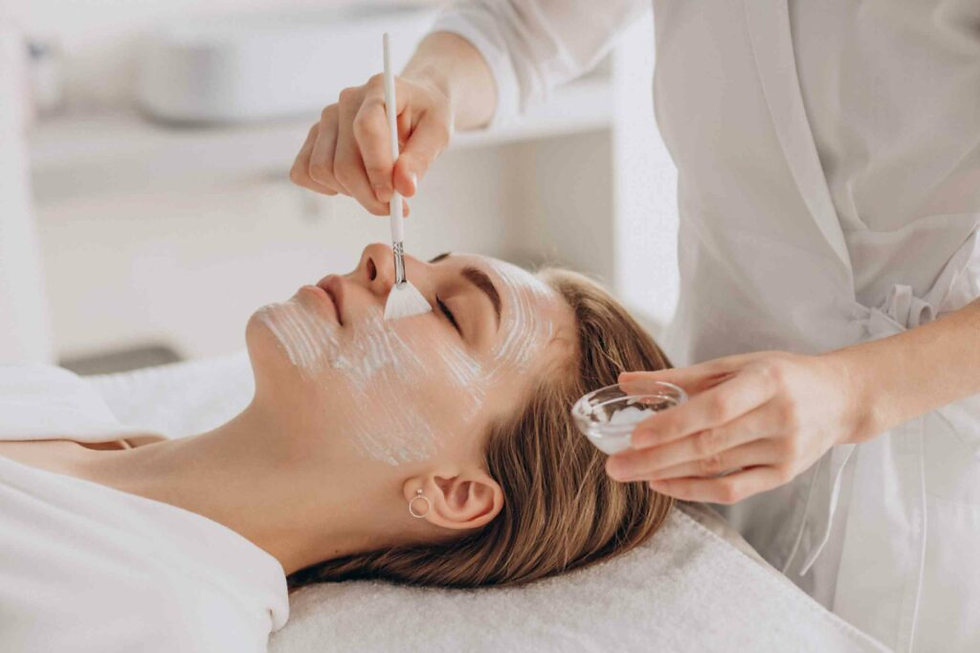Discover Pediatric Dentistry for Healthy Teeth
- Bisma Jamal
- Aug 15, 2024
- 4 min read
Maintaining good oral health from a young age is crucial for a lifetime of healthy smiles. Pediatric dentistry, a specialized field focusing on the dental care of children, plays a vital role in ensuring that children's teeth and gums are well taken care of as they grow. This article explores the importance of Pediatric Dentistry in Dubai, what it entails, and how it benefits your child's overall health.
What is Pediatric Dentistry?
Pediatric dentistry is a branch of dentistry dedicated to the oral health of children, from infancy through adolescence. Pediatric dentists are dental professionals who have completed additional training to specialize in the unique dental needs of children. Their role encompasses everything from preventive care and education to diagnosing and treating dental issues specific to younger patients.
The Importance of Pediatric Dentistry
Early Detection and Prevention: One of the primary goals of pediatric dentistry is to detect and address dental issues before they become more serious. Early visits to the pediatric dentist can help identify problems such as cavities, misaligned teeth, or developmental issues. Preventive measures, like fluoride treatments and dental sealants, can also be administered to protect teeth from decay and damage.
Building Healthy Habits: Pediatric dentists play a significant role in educating both parents and children about the importance of oral hygiene. Establishing good brushing and flossing habits early on can set the foundation for a lifetime of healthy teeth. Pediatric dentists also provide guidance on proper nutrition and its impact on dental health.
Comfort and Trust: Pediatric dental offices are designed to be child-friendly, with a focus on creating a positive and comfortable experience for young patients. Pediatric dentists use techniques tailored to children, ensuring that they feel at ease during their visits. Building trust and reducing dental anxiety from an early age can help prevent fear of dental visits later in life.
What to Expect During a Pediatric Dental Visit
Initial Examination: The first visit to a pediatric dentist typically involves a thorough examination of your child’s teeth, gums, and overall oral health. The dentist will assess the development of your child's teeth and jaws, looking for any signs of abnormalities or issues.
Preventive Care: Based on the examination, the pediatric dentist will recommend preventive measures to protect your child’s teeth. This may include professional cleanings, fluoride treatments, and dental sealants. Fluoride helps strengthen tooth enamel and prevent cavities, while sealants protect the chewing surfaces of molars from decay.
Education and Guidance: Pediatric dentists provide valuable education on proper oral hygiene practices. This includes teaching children how to brush and floss effectively and explaining the importance of a balanced diet. They also offer advice on habits such as thumb sucking or using pacifiers, which can impact dental development.
Monitoring Growth and Development: As children grow, their dental needs change. Pediatric dentists monitor the development of teeth and jaws, addressing issues like crowding or misalignment. They may recommend orthodontic evaluations if necessary, ensuring that any potential problems are addressed early.
Common Dental Issues in Children
Cavities: Dental cavities are a common issue in children and occur when tooth enamel is damaged by acids produced by bacteria. Pediatric dentists focus on preventing cavities through regular cleanings, fluoride treatments, and dietary advice.
Teething Problems: Teething can be uncomfortable for infants and toddlers. Pediatric dentists can offer guidance on how to ease teething pain and ensure that teeth are coming in correctly.
Misalignment: As children’s permanent teeth come in, issues such as crowding or misalignment may arise. Pediatric dentists can identify these issues early and recommend orthodontic treatments if needed.
Thumb Sucking and Pacifier Use: Prolonged thumb sucking or pacifier use can affect the alignment of teeth and the development of the mouth. Pediatric dentists provide strategies to help children break these habits and promote healthy dental growth.
Tips for Parents
Start Early: It is recommended that children visit a pediatric dentist by their first birthday or within six months of their first tooth eruption. Early visits help establish a dental home and ensure that your child’s oral health is monitored from a young age.
Promote Good Oral Hygiene: Encourage your child to brush their teeth twice a day with fluoride toothpaste and floss daily. Make oral hygiene a fun and rewarding part of their routine.
Monitor Dietary Habits: A balanced diet is crucial for healthy teeth. Limit sugary snacks and drinks, and encourage healthy choices like fruits, vegetables, and dairy products.
Be a Role Model: Children often mimic their parents' behaviors. Show your child the importance of good oral hygiene by practicing it yourself and making dental care a family priority.
Address Dental Anxiety: If your child is nervous about dental visits, talk to the pediatric dentist about techniques to help ease their anxiety. Many pediatric dental practices offer a welcoming environment with child-friendly staff and amenities to make visits more comfortable.
Conclusion
Pediatric dentistry is essential for ensuring that children develop and maintain healthy teeth and gums. By focusing on preventive care, education, and early intervention, pediatric dentists play a crucial role in setting the stage for a lifetime of good oral health. Regular visits to a pediatric dentist, combined with good oral hygiene practices and healthy dietary choices, will help your child achieve and maintain a bright, healthy smile.




Comments